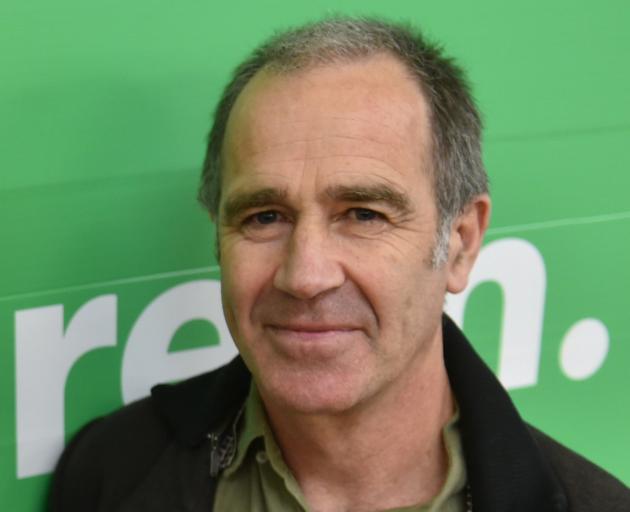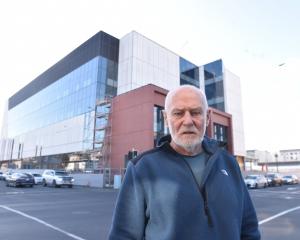
But Mr Willis is a guy and he is also a firearms owner — as well as being his party’s firearms spokesman.
Despite people’s likely expectations of what a Green policy on firearms might look like, last election the party advocated for pretty much a retention of what were then the current firearms laws, albeit with a review of the vetting procedure to obtain a firearms acquisition certificate.
This has not been an uncontroversial endeavour thanks in no small part to Ms McKee, in a past life, being an enthusiastic advocate for easing firearms regulations.
Ms McKee is, unashamedly, a "gun girl", but she is also a vociferous advocate for being tough on criminals. Her belief is that responsible and law-abiding people should be able to do whatever they want, but that the law should have little forgiveness for those who abuse that privilege.
Mr Willis and Ms McKee will be debating their respective positions for most of the remaining time this Parliament has, and this week squared off as the Firearms Prohibition Orders Legislation Amendment Bill went through its committee stages.
An order (FPO) prohibits certain classes of convicted criminal from having a firearms licence, let alone an actual weapon. The Bill plans to expand that to include an "associate of a gang or an organised criminal group", and also to increase police powers so that they can conduct a warrantless search related to an FPO.
Last week, Mr Willis set out his objections to this in his second reading speech, complaining that the proposed law change would open up communities to potential harassment due to the legislation’s "really, really vague, vague definition of gang members or associates".
"That’s why this Bill is really about virtue signalling, rather than about safety or concern about gun controls."
For this week’s committee stages Mr Willis returned armed with fresh ammunition, so to speak, in the form of a report released last Friday into bias and structural racism in policing.
Put simply, Mr Willis and other opposing MPs believe that the new beefed-up FPO will be nothing more than a further tool to pick on people who are already susceptible to being targeted by the authorities simply for being Māori or Polynesian.
"It risks splitting or giving further prejudice to communities that really we should be supporting instead," Mr Willis said.
Ms McKee (Ngāpuhi) said while Mr Willis was correct that three-quarters of gang members were Māori, over a third of victims of crime were also Māori.
"I think it’s a win for our Māori communities who are affected by the illegal possession of firearms and crime."
Mr Willis was soon back — "I have heard that it’s not the intent to target gang members or their friends or family. And that’s great, but what if that is the actual result of this Bill? — but was ordered to sit down by assistant Speaker Barbara Kuriger for repeating what he had said earlier.
Undeterred, Mr Willis was back in part two, including a proposed amendment that someone searched who turned out to not be subject to an FPO be eligible for compensation.
"I think we need to be careful not to condemn or assume that people who have licences may not also be criminals or dangerous. But, to my point, I think if we have checks on unfair searches or illegal searches, we do need to know what the consequences of those are."
And he, almost, got somewhere, as Ms McKee said that she understood his concern ... but not so much that she was going to accept his proposed amendment.
"I’d just like to reassure the member that we currently do have some safeguards. So as it mentions in the Bill, the search must be for the purpose of monitoring compliance with the FPO. It’s not about looking for drugs or looking for other weapons, it’s about the compliance of the FPO.
"If the search is for another purpose, the search could be found to be unreasonable under the New Zealand Bill of Rights Act 1990 ... we have case law already to allow for people to seek compensation."
Sadly for Mr Willis, Parliament hit the accelerator pedal on Thursday and the Bill passed its third reading without his input, his Dunedin colleague Francisco Hernandez ably filling in.
Eyes right
We know what Dunedin Labour MP Rachel Brooking was trying to achieve with Question 8 on Tuesday, but she did rather leave an open goal for RMA Reform Minister Chris Bishop when she asked about the differences between Labour’s fast-track laws and the government’s proposals.
"Well, the member doesn’t need to ask me that," Mr Bishop expostulated.
"She’s sitting right next to the guy who designed it. I encourage her to turn to her right and ask the question, but the member already knows the answer is yes — there is a difference in the purpose statements."
"The guy" being former Labour Otago MP David Parker, trying but failing to look like he wasn’t actually there.
So near, so far
Great excitement for Taieri New Zealand First list MP Mark Patterson on Wednesday afternoon when he rocketed up the batting order to not only sit in for Ms McKee for the final committee stage of a courts Bill, but also for Mark Mitchell at the start of the Corrections Amendment Bill. Happily for Mr Patterson, he did not actually have to answer any questions, merely watch as the votes were tallied.
Mr Patterson was actually on the cusp of being the most important person in the government. Parliament does not have a quorum rule but a minister must be in the House at all times ... and if National Selwyn MP Nicola Grigg had had to pop out Mr Patterson would have been carrying the responsibility of government solely on his shoulders.












